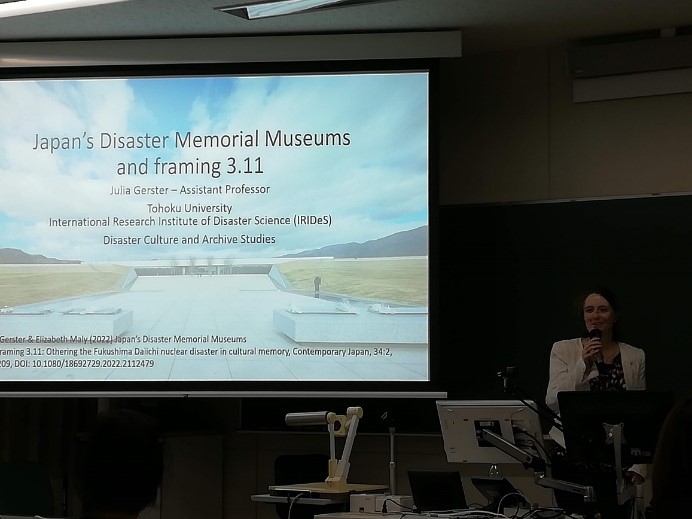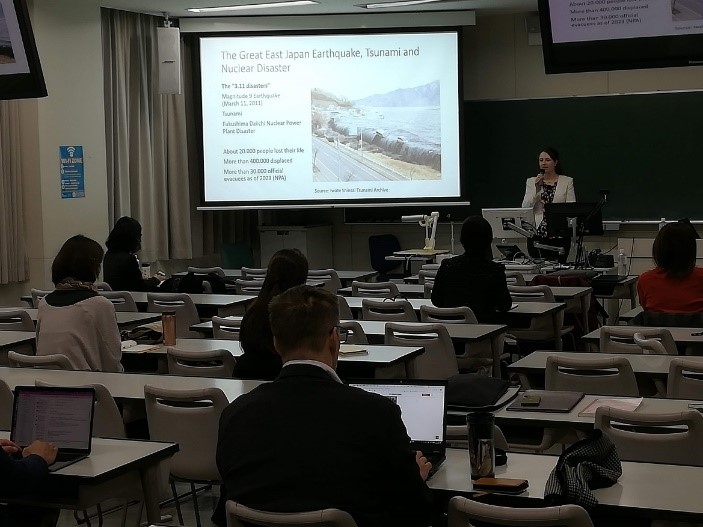RCAPS Seminar “Japan’s Disaster Memorial Museums and framing 3.11”
On December 5th, RCAPS held a seminar welcoming Dr. Julia Gerster from Tohoku University International Research Institute of Disaster Science Disaster Culture and Archive Studies


[Report by Professor YOSHIDA Kaori (APS)]
The speaker, Dr. Gester, introduce us various aspects of studying disaster (and dark historical) museums, including: 1) what are key issues of studying these museums, 2) what have been missing in the previous literature on this subject matter, 3) what kinds of methodologies/approaches can be taken in studying these museums. Looking at different types of disaster museums for 3.11 in Japan—municipal, provincial, schools—Dr. Gester presented the results of her investigation on the role of museums in shaping collective memory of the disaster, based on the data collected from: museums’ mission statements and exhibitions, and interviews with curators and museum staff. Accordingly, she provided us with some answers to the following questions: “How do public disaster museums frame their representations of 3.11,” and “What official narrative is created within the cultural memory of the triple disaster in Japan?” She argued that most disaster museums support the master narratives of overcoming hardships to contribute to a better future.
Meanwhile, Dr. Gester also emphasized that the forward-looking messages presented by disaster museums, combined with tendencies of museums to focus on local disaster experiences and the view of disaster risk reduction with an artificial separation between man-made disasters vs. natural hazards, contributes to “othering” the nuclear disaster, as well as disregarding experiences of minority groups of women and children, although these groups are “passively” over-displayed at the same time.
The length of the talk was about 50-60 minutes, followed by 20-30 minutes Q&A session. There were very active discussions during Q&A session. Both faculty and students from the floor asked questions and commented on the seminar content. There also seemed to be a lot of networking among the audiences as well as between the audiences and the speaker. It was a very successful seminar overall.
- TOPIC
- セミナー

